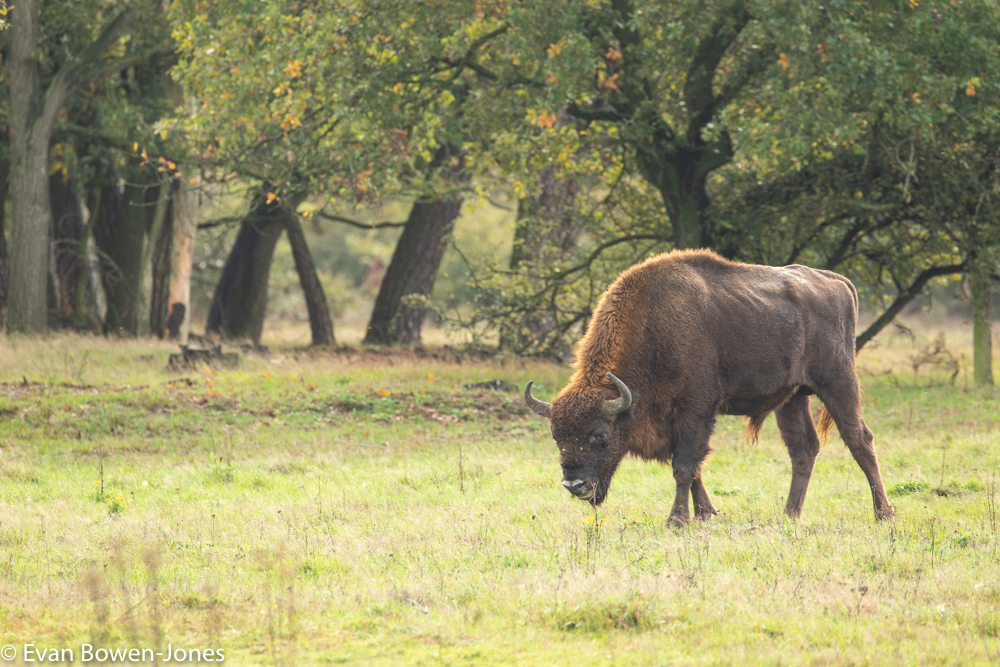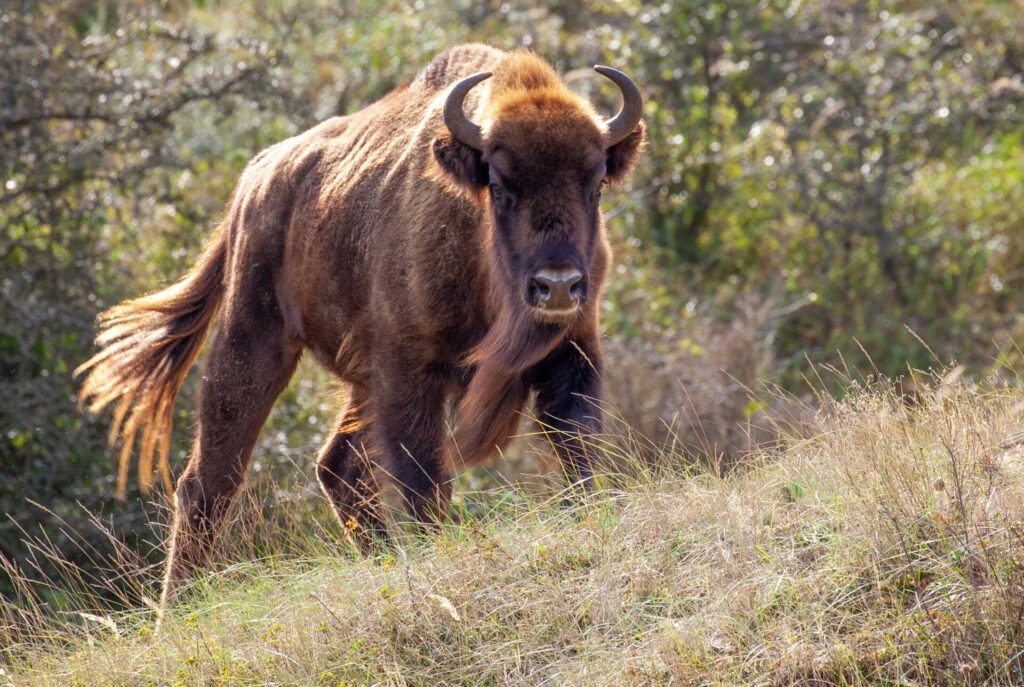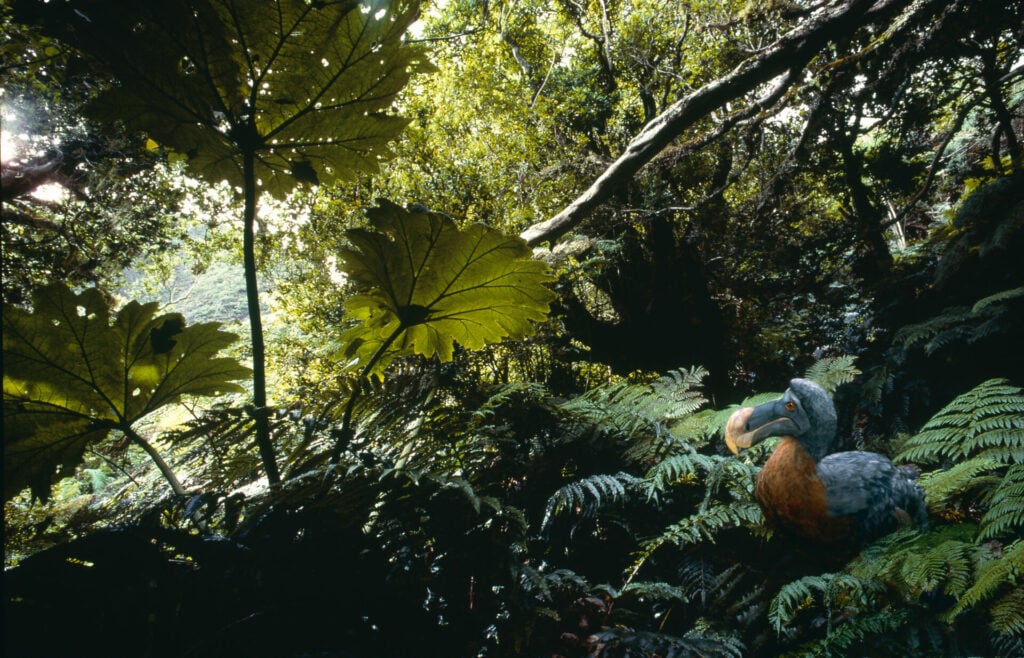A project to return wild bison to the UK for the first time in thousands of years has won the acclaim of Hollywood star Leonardo DiCaprio – even though he appeared to eat the beast’s raw liver in his starring role as a frontiersman in movie The Revenant.
The actor, who is a keen environmentalist, highlighted the positive impact the bison are already having on the landscape in Blean, near Canterbury, Kent since their release earlier this year.
‘The Wilder Blean project’s mission is [to] let the animals’ natural behaviour nourish the commercial pine forest into natural woodland, allowing for new plants, insects, and wildlife to thrive in this habitat,’ DiCaprio posted on Facebook.
Kent Wildlife Trust responded: ‘How exciting to see that news of the bison release has reached Hollywood!! Thank you so much Leonardo DiCaprio for sharing information about our #WilderBlean project and for everything you’re doing to raise awareness of the #climatecrisis.’
Biodiverse Bison
Four European bison, who were released into the large nature reserve in the middle of July, have been fitted with tracking collars to allow researchers to gain insights into their behaviour.
And so far, they have already begun to make their mark on the woods, creating new paths and clearings in the forest.
The bison’s penchant for eating bark will knock over a number of trees, opening up trails and allowing light on to the forest floor, while their habit of enjoying a good dust bath will produce larger areas of open ground. These changes should allow new biodiversity such as plants, insects, and birds to thrive.
Organisers, The Wildwood Trust and Kent Wildlife Trust say this boost to biodiversity will show how such reintroductions can help more carbon to be stored, therefore tackling the climate crisis.


DiCaprio added: ‘European bison are the continent’s largest land animal and were extinct in the wild a century ago.
‘They are recovering through reintroduction projects across Europe, and recently three were released into the Kent countryside in Canterbury, becoming the first wild bison to roam in Britain for thousands of years.’
Kent Wildlife Trust said the bison, along with Exmoor ponies and iron-age pigs, ‘will transform the woods into a lush, thriving, biodiverse environment once more and allow us to step back from hands-on management.’
Ranger Donovan Wright said that in just a few weeks the bisons’ behaviour was changing the structure of the woodland.

He said: ‘The bison have already had a remarkable impact. I did not expect it to be so sudden, but literally from the first day you could sense their presence in the woods.
‘We have seen them create a network of paths opening up trails of up to a metre wide. Through dense silver birch thickets that were once almost impenetrable, you can now comfortably walk along bison trails. And we are not the only ones using them, I have seen foxes, rabbits, and a slow worm sunbathing on one.
‘When you follow the bison trails there is the unmistakable smell of bison in the air and, of course, bison droppings. They have healthy appetites, eating up to 35kg of vegetation a day, and with that come lots of fertilising and seed dispersal.’
Fellow ranger Tom Gibbs added: ‘While they are very much wild animals, they have distinctive personalities. I have seen the two younger females playing and enjoying their surroundings. They will jump in the air when they get excited, chase each other and run around.
‘They also have quite specific head movements when at play. They are really enjoying being outside – it’s fantastic they are comfortable enough to interact in this way.’










